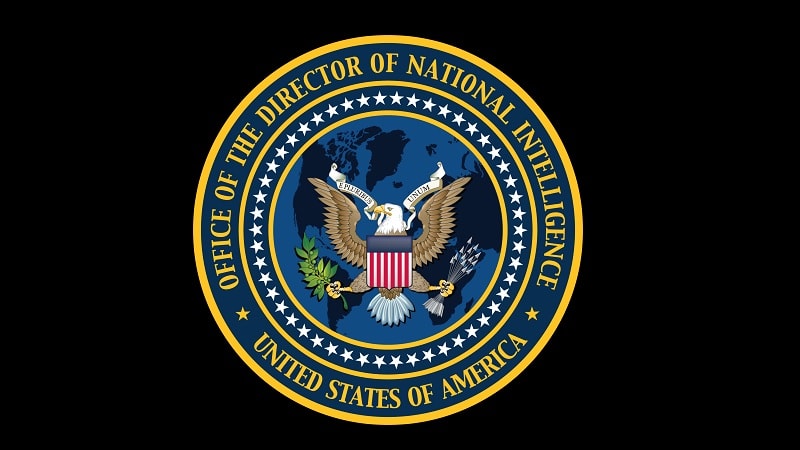
The Director of National Intelligence, Avril Haines, today released a new strategy providing the intelligence community (IC) with directions on how to navigate the next four years in national intelligence.
The 2023 National Intelligence Strategy (NIS) outlines six goals that reflect the current national intelligence landscape:
- the centrality of strategic competition between the U.S, China, and Russia;
- the growing importance of resilient emerging technologies, supply chains, and economic management to national security;
- the recruitment and development of a diverse and united IC workforce;
- delivering interoperable and innovative solutions;
- the increasing influence of sub-national and non-state actors; and
- tackling the challenges that stem from shared global challenges, like climate change and health security.
“The National Intelligence Strategy articulates what the Intelligence Community will need to cultivate to be effective in the future,” Haines said in a press release. “The six goals outlined in this National Intelligence Strategy have emerged as our understanding of the kinds of information, technology, and relationships needed to be effective in the future has expanded.”
She explained that the IC’s ability to successfully achieve these goals relies heavily on whether it can adapt, increase resilience, and sustain its focus on overcoming the challenges of a rapidly changing environment.
Goal 1: Global Strategic Competition
According to the strategy, the IC must deepen and expand its expertise, strengthen its collection and analytic capabilities, and embrace new partnerships and external perspectives to address policymaker needs in this more competitive environment – especially against the growing powers of China and Russia.
Under this goal, the IC will invest in developing innovative methods and cultivating new sources, and work more systematically with allies and partners in the public and private sectors – globally – to facilitate a common understanding of technological risks and advancements and how to address them. In addition, the NIS calls for the IC to establish methods and systems that promote greater interoperability and understanding across traditional and distinct geographic and functional areas.
Goal 2: A Diverse and United Workforce
Recruiting, developing, and retaining a talented and diverse workforce is crucial to the IC’s future success. Over the next four years, the NIS calls for the IC to modernize recruiting, hiring, and vetting processes to ensure the IC’s ability to competitively and rapidly recruit and onboard a diverse, trusted, agile, and expert IC workforce.
Goal 3: Delivering Interoperable and Innovative Solutions
According to the NIS, promoting technical and tradecraft competitiveness and innovation for the IC requires sustained investment and rapid adaptation of interoperable solutions at scale.
To deliver these interoperable and innovative solutions at scale the IC will need to will remove barriers by establishing unified IC procurement authorities, centralized solicitation systems, and a Community-wide contracting system, all bolstered by automation tools.
Goal 4: Strong Partnerships
The NIS calls for the IC to adopt new approaches that take full advantage of non-state actor expertise and insights that are necessary for the IC to fulfill its mission; especially non-state actors positioned to detect and defend against cyber threats to critical infrastructure.
Therefore, the IC must build new and restructure existing collaborative mechanisms with non-state actors and find ways to enhance the flow of information to and from these actors in ways that safeguard national security.
Goal 5: Tackling Shared Global Challenges
According to the NIS, intensifying global challenges are at the core of national and international security. The IC must work across organizational boundaries and collaborate with other government agencies – both Federal and local – to better integrate research, expertise, and data, and build the capacity to model and forecast potential cascading effects of global challenges, like climate change and health security.
Goal 6 Resilient Emerging Tech, Supply Chain, and Economic Management
In a growing complex environment – both nationally and globally – the IC must expand its role in understanding threats and vulnerabilities to supply chains and helping to mitigate threats to government and industry partners’ infrastructure. Therefore, the NIS directs the IC to enhance transparency with Federal, state, local, tribal, and territorial governments; non-state actors; and allies with a stake in the nation’s critical infrastructure.
IC Leaders Reflect on the 2023 NIS
Haines also explained that the NIS provides the IC with strategic direction on how to navigate information and technological edge, a broad array of partnerships, and a talented and diverse workforce as it pursues a national intelligence “vision of an IC that embodies America’s values.”
“It also highlights the expanding role of the IC in supporting the resilience of our national critical infrastructure and that of our allies and partners,” Haines said, adding that the NIS reflects the input of leaders from each of the 18 IC elements.
“The National Intelligence Strategy lays out how we must approach the transforming world to provide needed and timely insights by emphasizing the importance of investing in partnerships, technological innovation, diverse talent, and expertise to address issues from competition with China to climate change and global food insecurity,” CIA Director Bill Burns said.
“The NIS recognizes a growing competition between democracies and autocracies. Competition spurs innovation, fresh thinking, and, when necessary, action. The NIS identifies six priority goals that will protect not only our nation but also our partners in the years ahead,” said General Paul Nakasone, director of the National Security Agency.
“The FBI and our Intelligence Community partners are constantly working to anticipate new threats to our national security and how to counter those challenges. The new National Intelligence Strategy is a vital guide for all members of the IC,” FBI Director Chris Wray said.
